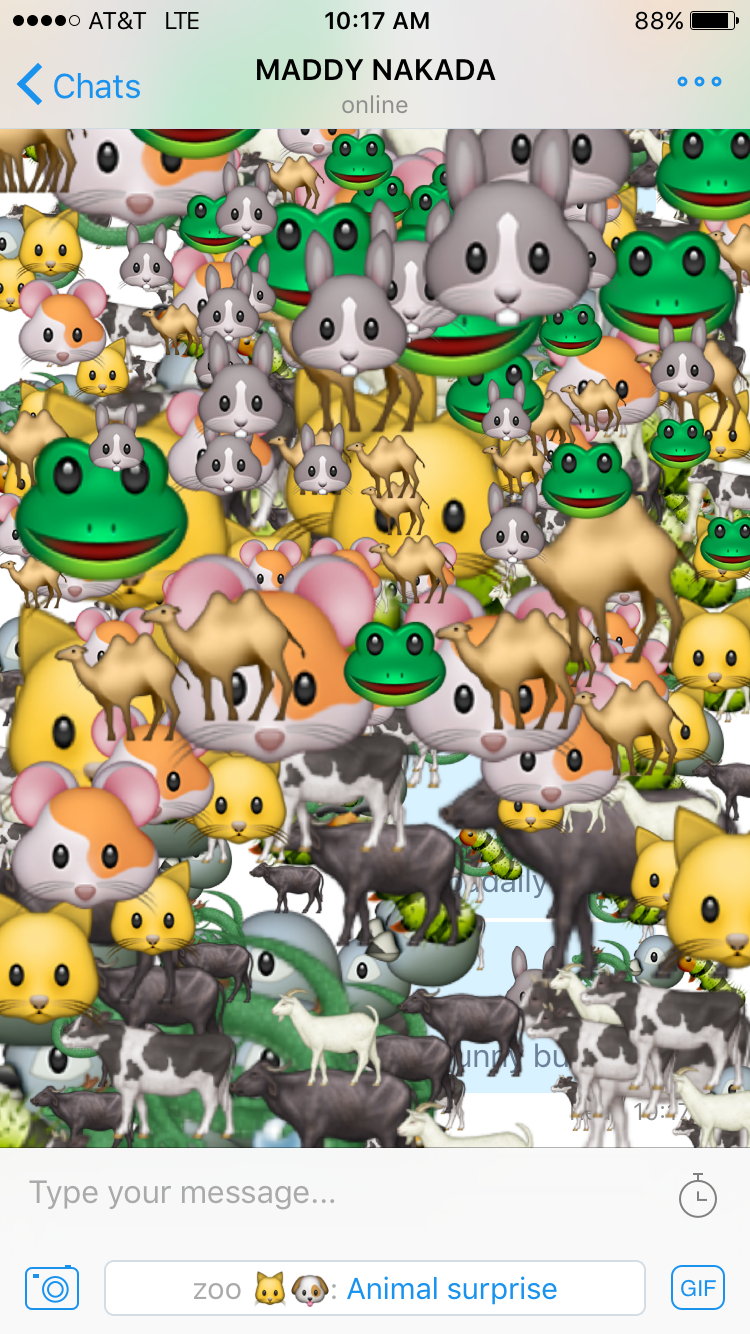Lick students are prolific social media users. Although a handful of students choose to abstain, Snapchat, Facebook, and Instagram are a part of daily life for most students. But while these platforms are the most popular, there are numerous smaller apps trying to break into the high school demographic. One of these apps is SoChat. Launched on April 28, 2016, the eight person start-up wants to be the next big tech company.
Unlike many other start-ups that are trying to draw users with new features and ways of communicating, SoChat instead aims to attract users by consolidating existing features from other apps. The company’s founders Luke Orthwein and Ryan Burke both lived in China and used the app WeChat when they were there. They envision SoChat as an American version of this product, combining apps like iMessage, Snapchat, and Facebook messenger into one app.
The Paper Tiger was given an opportunity to meet with the SoChat team and to test the product prior to launch. At first, we were skeptical of the app’s ability to provide a service that other apps couldn’t. The SoChat team showed us a number of features that the app has that sets it apart from its competitors, and we have reviewed them.
Messaging:
Overall there’s nothing special about the messaging feature. Even down to the color scheme it’s almost identical to iMessage or Facebook Messenger. The one thing that sets messaging apart is the ability for users to message without cell service or wifi. By using bluetooth, SoChat allows users to message each other within approximately five hundred feet of one another. This could be useful on airplanes, or in rural areas such as on camping trips.
Swipe Chat:
Swipe chat is one of SoChat’s features that we can live without. Swipe chat is SoChat’s take on Tinder; the appeal to certain demographics is clear. Swipe chat is a way to start talking to new people who live or work near you. However, when flipping through profiles, it’s uncomfortable to go from a user who describes herself as and looks like a sixth grader to another user who describes himself as a “sexual god.” When interviewed, SoChat’s founders stated that minors and adults would be separated on the app. Still, as of May 9th, the two groups are not separated. Even if minors are separated, allowing twelve year olds to talk to seventeen year old strangers still feels unsafe. However, SoChat is not alone in this feature. Tinder has a network available to users between the ages of thirteen and seventeen but these users are separated from the adult network.
Animal Surprise:
This feature was a Paper Tiger favorite. By typing in “Animal Surprise,” a user can send their friends a random animal pun. Although animal surprise offers no purpose except entertainment, the Paper Tiger staff found “Furious George” and “Mare-ilyn Monroe” to be amusing.
People Nearby:
People nearby is one of Sochat’s unique features. It uses location services on one’s phone, combined with bluetooth, to show a list of people within a couple hundred miles radius. Although it doesn’t show anyone’s exact location, it’s a little disconcerting to have one’s location broadcast to strangers. However, it is possible to disable this feature.
The Sochat team envisioned this feature as a way to meet people at the same events as you are. Using bluetooth, the app can tell you which users are in the same room as you. One example of a use for this feature would be at a party. With a glance at one’s phone, one can see other users in the room and start a conversation with them without having to seek them out.
Additionally, the app keeps a log of who is in the same room as the user. This feature seems much more useful. For example, if you’re at a party and make a new friend but forget to ask for their contact information, the next day you could look through a list of who you were in the same room with the night before.
“People nearby” elicits unease from those who value privacy– strangers can see your proximity to them and request to chat with you. However, the user has to accept the chat request before any messages can be sent or received. Furthermore, SoChat only shares users’ first name, giving an additional level of privacy.
Rock-Paper-Scissors:
Rock-Paper-Scissors is, in theory, one of the most useful features of SoChat. It’s a fair way to settle disputes or to pick who will pay for dinner. However, one glitch in Rock-Paper-Scissors allowed one player to see the others play, entirely defeating the purpose of the game.
Disappearing Messages:
Disappearing messages were inspired by Snapchat. Similar to Snapchat, the user can send a message that will “self-destruct” or delete after a set number of seconds. While the secrecy and temporary nature of these messages are appealing, the functionality is essentially identical to Snapchat.
As a messaging app, the Paper Tiger foresees challenges for Sochat in expanding its user base. Most of its features already exist on Snapchat and other social media apps and it seems unlikely that people will drop their existing networks on those apps for a new up-and-coming app with the same features. This is another drawback of Sochat: because it is such a new app, the network of users is small; currently only ten Lick students are on Sochat. It’s hard to draw people into a social network when the network is so small.
However, for users who are looking to meet new people or who want a relationship, Sochat is a great app. Between swipe cards and people nearby, Sochat gives the opportunity to start conversations with a variety of people. Still, for users that aren’t looking to start a conversation with strangers, these two features are useless.
Sochat is trying to do too much by taking the most appealing features from popular social media apps and the app feels like a discordant mix of features. However, if Sochat remakes itself as a dating app and focuses on the feature that makes it unique, people nearby, the app will be able to attract a much larger audience with more specific intentions and begin building a wider network of users. Sochat’s future lies in innovation, not consolidation of existing apps.







